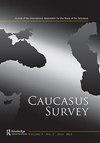Filling in the Urban Space: The “Port-Petrovsk” Fishery and Elemental Urbanization in Makhachkala
IF 0.4
Q3 AREA STUDIES
引用次数: 0
Abstract
The paper is a case study of “Port-Petrovsk”, a large fishing and fish processing company in Makhachkala (Dagestan, Russia) that was purposefully driven to bankruptcy in 2007, leading some 5,300 people to lose their workplaces as well as access to many social services. The factory was bankrupted as there existed a small group willing to get rich on its assets. A considerable portion of the company’s former premises has already been sold and new apartment buildings have been erected there. Former workers and shareholders have been trying to reclaim their property and save the remaining company premises from being sold to developers. The case is presented against the background of what has been called elemental urbanization: a dynamic, chaotic and informal way of development of urban space in Makhachkala, one of the fastest growing cities in Russia. The whole process of conflict and negotiations around the company assets shows how property rights in Dagestan challenge the Western-set dichotomy of the individual versus the collective. Moreover, it presents property rights as a bundle that consist of legal, economic, and moral dimensions.城市空间的填充:马哈奇卡拉“彼得罗夫斯克港”渔业与基本城市化
这篇论文是对“彼得罗夫斯克港”的案例研究,这是一家位于Makhachkala(俄罗斯达吉斯坦)的大型渔业和鱼类加工公司,2007年被故意推向破产,导致约5300人失去了工作场所和许多社会服务。这家工厂破产了,因为有一小群人愿意靠自己的资产致富。该公司相当一部分以前的办公场所已经出售,并在那里建造了新的公寓楼。前工人和股东一直在努力收回他们的财产,并避免将剩余的公司房产出售给开发商。该案例是在所谓的要素城市化的背景下提出的:这是俄罗斯发展最快的城市之一马哈奇卡拉城市空间的一种动态、混乱和非正式的发展方式。围绕公司资产的整个冲突和谈判过程表明,达吉斯坦的产权如何挑战西方设定的个人与集体的二分法。此外,它将财产权呈现为一个由法律、经济和道德维度组成的捆绑包。
本文章由计算机程序翻译,如有差异,请以英文原文为准。
求助全文
约1分钟内获得全文
求助全文
来源期刊

Caucasus Survey
Arts and Humanities-History
CiteScore
1.30
自引率
9.10%
发文量
4
期刊介绍:
Caucasus Survey is a new peer-reviewed, multidisciplinary and independent journal, concerned with the study of the Caucasus – the independent republics of Armenia, Azerbaijan and Georgia, de facto entities in the area and the North Caucasian republics and regions of the Russian Federation. Also covered are issues relating to the Republic of Kalmykia, Crimea, the Cossacks, Nogays, and Caucasian diasporas. Caucasus Survey aims to advance an area studies tradition in the humanities and social sciences about and from the Caucasus, connecting this tradition with core disciplinary concerns in the fields of history, political science, sociology, anthropology, cultural and religious studies, economics, political geography and demography, security, war and peace studies, and social psychology. Research enhancing understanding of the region’s conflicts and relations between the Russian Federation and the Caucasus, internationally and domestically with regard to the North Caucasus, features high in our concerns.
 求助内容:
求助内容: 应助结果提醒方式:
应助结果提醒方式:


